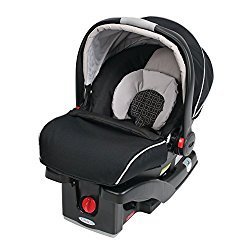Updated February 12, 2025
I was more than thrilled to have a home birth, but that doesn’t mean I did so without support. I spent a lot of time looking for the perfect midwife so that I could feel confident giving birth. I interviewed a handful of them before I found the perfect person. A list of questions I asked to ensure I received the care I was looking for is as follows.
How long have you been practicing midwifery?
You want someone who has at least a few years of experience so that they are well equipped. You also can use this question to flush out how long they were intraining.
Do you have children of your own and were any of them born at home?
This may not be a significant question for you, but can help this person feel more relatable to you because they have also experienced pregnancy and childbirth. If they have young children it can also demonstrate that they believe in what they are doing.
About how many births have you assisted?
There isn’t a right or wrong number for this, but you want to make sure it’s a number you feel is adequate. Most certified midwives need to deliver 40-50 babies just to be midwives. My preferred number was upward of 100.
Tell me about your certifications and licensing.
Mostly that they are certified, so that will make them a “certified nurse midwife”.
Do you know infant CPR?
This seems obvious, but isn’t always. They need to know it and hold a current certification.
Do you carry anti-hemorrhage drugs with you to all births and if so, which ones?
The answer here also needs to be yes. This means they are prepared for any emergencies that may occur. Bonus if they’ve actually used them in a real emergency.
How many clients do you take on at once?
This number needs to demonstrate for you that your midwife can balance their caseload against meeting your individual needs. You don’t want them to have so many clients that every meeting is rushed, but a decent number of people also speaks that the midwife is capable and other clients have been happy with the care provided.
How many other clients do you currently have that are due around my same due date?
You don’t want to be competing for your midwife’s attention if you go into labor at the same time as another of her clients so you want this number to be less than 6.
What is your most common cause for transfer to a hospital?
This gives you an idea of how capable they are with different emergencies. No matter how good your midwife is, you want someone who has experience with transferring to a hospital. Having to go to a hospital is not a demonstration of their skill, but how they handle that process is.
Are there any local hospitals or centers that you have partnerships with that will allow you to still support me during birth in the event of a transfer?
Sometimes you may have to transfer. But you will spend months building this relationship with your midwife. So even if you have to go to a hospital, you may still want them by your side, even if they now double as a doula. Having a midwife that hospitals don’t want in their patient rooms can leave you without the care you
deserve.
Also, post hospital birth, I will also say that trying to transfer into a hospital late in your pregnancy can be difficult. It wasn’t enough of an emergency that hospitals absolutely would have had to take me. But having a connection to get into good care is helpful.
What are complications that you are unwilling to work with?
Some midwives will not or actually (legally) cannot care for you if you run into
certain complications. Find out what those are so you know exactly what to
expect should a complication arise.
If you are sick or out of the office or unavailable for any reason who will I be working with?
I highly encourage working with someone who has a backup team, either a partner or that is part of a collective. And ideally, you won’t be meeting that person for the
first time when you go into labor, so if you do hire this midwife, it is reasonable to insist you meet their backup as well.
Do you offer birthing classes?
Many midwives offer birthing classes that are included in their fee. Sometimes this class is actually required. A good birthing class is important to help you feel successful and prepared.
Can I have a water birth?
Not a must for everyone, but if you want a water birth you better make sure your midwife will support that. Plus, since you are likely paying for it, determine if a birthing pool is part of the fee or an extra cost. If it’s extra, how much?
What sorts of tests do you offer and what do you require?
I fully believe in choice, and thus I think it is important that every test be
available to you and that you get to make an educated decision around what you
do and do not partake in.
What type of postpartum care do you offer?
You are looking for what type of clean up after the birth, will they come to you for a
2 week checkup, and any lactation support they might offer, things along those lines.
Do you know how to suture?
The legality of this varies by state, so your midwife may be hesitant to answer this
question. I know suturing isn’t legal for a midwife to do in the state of Colorado, but I want to know she could do it anyway, especially in an emergency.
What is the cost of care and what does that cost include?
What you can afford will depend on you. But your care should include all of your standard prenatal appointments, attendance at your birth, and at least 1 postnatal follow up. Additional costs might include things like sourcing your own birthing supplies or renting a birthing pool or getting an ultrasound.
Will you work with my insurance company?
To be clear, the vast majority of insurance companies won’t cover a home birth AND a home birth is usually cheaper than what you will pay even with insurance if you go to a hospital. But it’s worth an ask.
Do you have a relationship with a family care provider that I could work with after the baby is born?
This is how I found my family care provider for our whole family. Because I had found a midwife whose values aligned with mine, she was able to point me to a doctor that would continue to support me as well. Also, not all doctors are particularly supportive of home births. When interviewing a new doctor, I had to ask about how they would feel about my midwife completing the 2 week checkup and not them.
After my interviews, I had it narrowed down to two people that I really liked. Ultimately, I ended going with the individual that I felt had more experience and was more capable of handling an emergency. These were the five questions I asked myself when making my final decision.
- Do I like this person on a personal level?
- Do I trust this person?
- How do I feel about my pregnancy after talking to them?
- Will I be able to relax around this person?
- Does this person have enough experience to make me feel safe?
Hopefully these questions help you find the perfect midwife.












Pingback: Feeding Your Baby in the First Year - Freedom Inside the Box
Pingback: Is a Birth Doula Right for You? - Freedom Inside the Box
Pingback: What to Expect Giving Birth at a Hospital - Freedom Inside the Box
Pingback: Diastasis Recti: Abdominal Separation During Pregnancy - Freedom Inside the Box
Pingback: Home Birth Questions Answered - Freedom Inside the Box